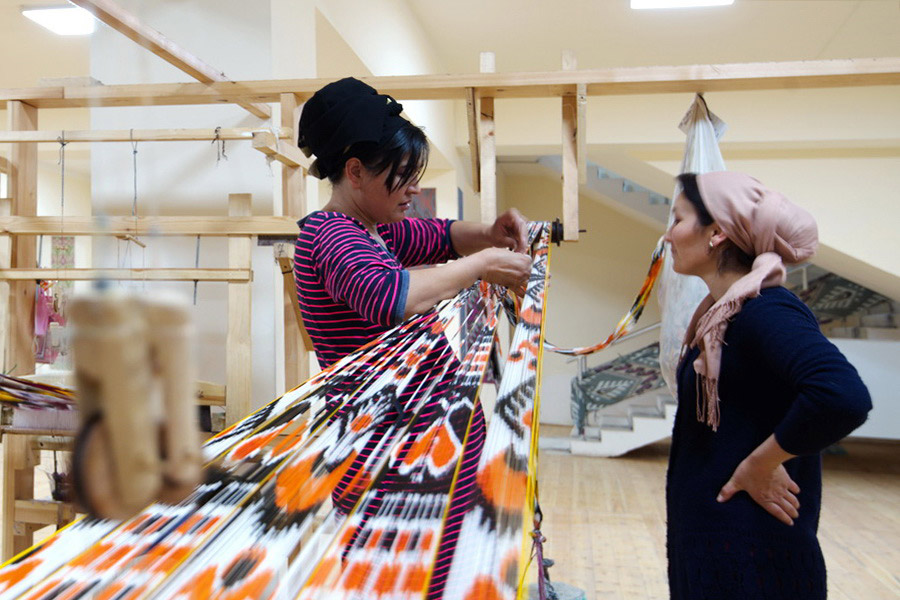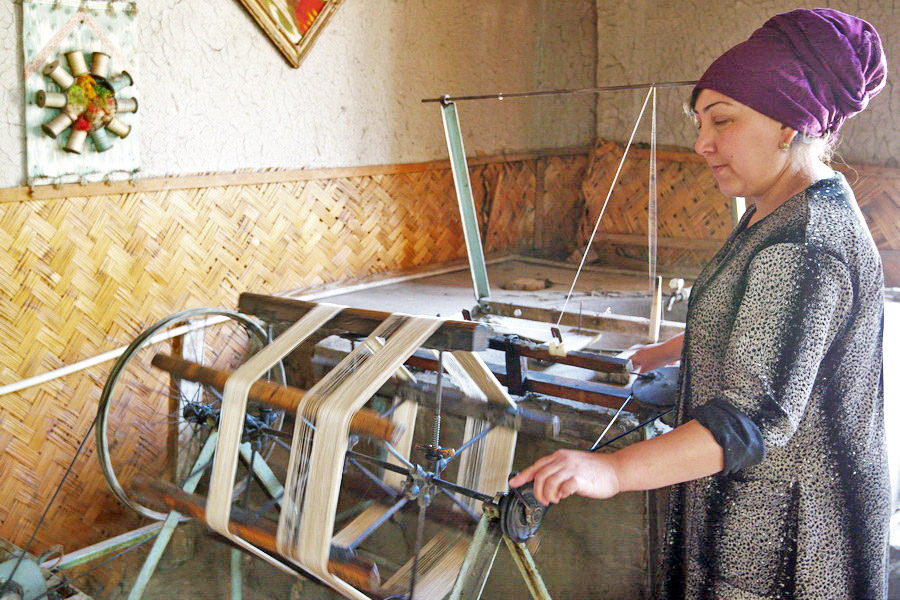Modern Silk Production

Silk fabric is produced from the threads received from cocoons of silkworm caterpillars. Their cultivation requires special attention and hard work.
Caterpillars hatch from eggs (grains) under the temperature of 23–25С. At big silkworm farms grains are placed in special incubators where the necessary temperature and humidity are maintained. It takes 8-10 days for the eggs to produce small (about 3 mm) dark-brown larva covered with long bristles.
The hatched caterpillars are transferred onto special feeding rack in well ventilated room with the temperature of 24–25С. Each rack consists of several shelves with fresh mulberry leaves. The worms are to be fed exclusively clean, fresh and dry mulberry leaves. Caterpillars’ appetite grows right before your eyes. Under 20–25С larva development ends in approximately one month, if the temperature is higher, the process is faster. Grown caterpillar, as a rule, acquires flesh color, reaches 7-8 cm in length and the thickness of little finger.
For this purpose silkworms are put into straw boxes where they produce cocoons. Cocoons are formed by the so-called silk glands of caterpillars located in a small prominence under lower lip. They produce gummy substance which turns into a solidified silk thread as soon as it contacts ambient air.

Right after a caterpillar finds a suitable support, it quickly climbs it and starts working. Clinging to one of the twigs with its belly legs it starts shaking its head left, right and behind and touches various places of rearing house with its lower lip. Soon a thick silk thread net is formed around it. But it is only the structure’s frame. Having finished the skeleton, the caterpillar creeps inside; all this time the silk threads support it in the air and serve as the place where the real cocoon will be attached. After that the weaving begins. Letting out the thread, the caterpillar quickly twirls its head. Each coil requires 4 cm of silk thread and the entire cocoon needs from 800 m to 1 km, sometimes even more! The caterpillar must shake its head twenty four thousand times to make a cocoon.
Cocoon formation takes about 4 days. Having finished, the exhausted caterpillar falls asleep in its silk cradle and becomes a pupa there. After cocoons have been gathered their pupae are killed by steaming. The cocoons are put into boiling water and the thread is carefully reeled off the cocoon. The length of thread received from one cocoon can reach from 350 to 1,000 meters.
The resulting silk threads of matte-yellow color are deprived of shine. They acquire it during further treatment with sericin. Then threads stain and weave from them a matter.

